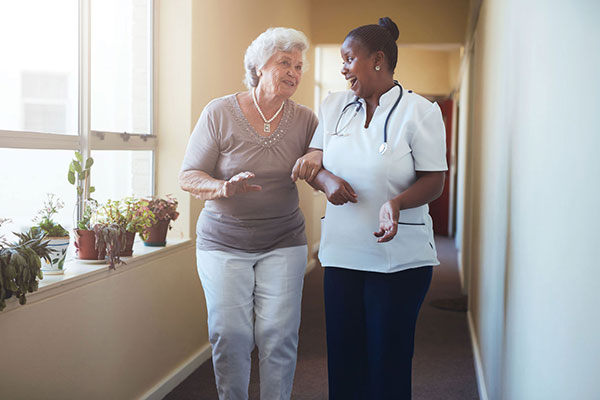Moving Forward as a Lung Cancer Survivor
A diagnosis of lung cancer can make you wonder how long you or your loved one has to live. It’s frightening to imagine a different future than the one you originally planned for yourself. It can also be difficult to talk about such painful topics.
Some people who have had cancer find that they want to share what they learned or provide support to others who are going through the same experience. Others may be interested in working to change laws or policies to help more people. Still others may want to focus on taking care of themselves and spending time and energy on work, loved ones, or other interests.
TAKING CARE OF YOURSELF
Once your treatment is over, it is important that you receive regular follow-up care. Visit your doctor as prescribed to check for any return of cancer. The American Society of Clinical Oncology recommends that you have follow-up appointments with your oncologist every three months during the first two years after treatment, every six months during years three through five, and yearly after that. You can schedule more frequent appointments if you are experiencing symptoms that worry you, or if you have other healthcare concerns. Even after treatment ends, you may experience lingering symptoms or side effects from lung cancer or its treatment. Ask your oncologist what symptoms to be on the lookout for. If symptoms occur, report them promptly.
As you finish treatment, you may have a lot of questions about how to move forward. Write questions down as you think of them, and have them ready when you have appointments, email conversations, or phone calls with members of your healthcare team. Possible questions may include:
- How long will it take me to recover from my treatment?
- Are my treatment-related side effects permanent?
- Will I be able to go back to work?
- Can I take up my usual sports, hobbies, and activities again?
- Where can I get help dealing with my feelings?
- Does the cancer center or hospital provide counseling services? Are they free, or is there a fee?
- How do I get practical help at home?
- Who can advise me on money matters or help with insurance benefit claims?
FINDING HOPE
Your sense of “hope” can change over time. Perhaps you hope for recovery of your physical and emotional health, for peace in your relationships, for good communication with your healthcare team, for a way to come to terms with lung cancer and its place in your life. By doing important things such as taking steps to improve your level of physical activity, your diet, your relationships, and your emotional health, you are improving the quality of your life. Never be afraid to hope; just remember what you hope for may change.
People affected by cancer sometimes hear that they need to have a positive attitude to beat their cancer. Do not expect to be positive all the time; however, trying to view things from a positive perspective as much as possible can improve your general well-being. Finding productive ways to express your feelings is helpful.
PARTICIPATING IN SUPPORT AND ADVOCACY
There are many ways you can become involved in the lung cancer support and advocacy community. A good starting point is to talk with the people or organizations that helped you. People just like you can be important sources of support for others or voices for change. If we all work together, we can reduce the stigma associated with this disease. Possible ways you may become involved include:
• Help others through peer support. People with lung cancer often learn and get comfort from others who have had the disease. Ask about answering support telephone lines, helping with in-person support groups, or providing support online. Reach out to support organizations or hospital staff to learn more.
• Become an advocate. Advocacy is about standing up, being visible, and being heard. It is about promoting change and not accepting the status quo. Take a public stand for those causes and issues that matter to you. You can advocate for changes to disability or insurance laws or increases in government funding for lung cancer research. Advocacy can involve making phone calls, sending emails, signing petitions, writing letters or articles, or visiting government offices.
• Become a patient advocate. There are many ways to be a patient advocate. Some are similar to providing peer support but focus on helping groups of people, not individuals. For example, you could work with local hospitals to make sure people are getting the care, treatment, and support they need. Being a patient advocate can also mean working with researchers to help set up clinical trials, making sure that the recruiting process is appropriate, and ensuring that the patient’s point of view is considered. People who have had cancer are also sometimes needed to sit on government committees or review grant proposals from a patient perspective.
Excerpted with permission from Frankly Speaking About Cancer: Lung Cancer © Cancer Support Community. For more information about lung cancer, visit CancerSupportCommunity.org/Lung-cancer. For more information about the Cancer Support Community visit CancerSupportCommunity.org or call (888)793-9355.
This article was published in Coping® with Cancer magazine, March/April 2018.


